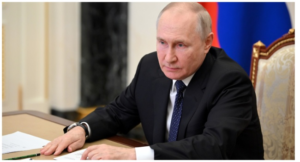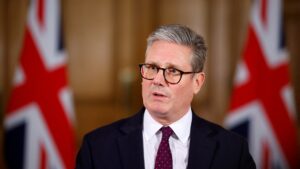
Senate President, Ahmad Lawan has appealed to the United Nations, World Health Organisation (WHO) to help Nigeria end tuberculosis.
In a statement issued by his Special Assistant Ezrel Tabiowo, the Senate President said the National Assembly has been supporting investments in the nation’s health sector.
He stated this on Wednesday while receiving a delegation of the United Nations Programming Mission to his office in Abuja.
Lawan who noted that the nation is ranked first in Africa, however, decried that paucity of funds poses a major threat in the fight against the disease.
“If we are number one in the African subregion and ranked ten in the world, it is not an enviable statistic.
“We are also constrained by the paucity of funds, we wish we could have more funds, and while we are trying to do our best, the United Nations and other bodies such as the World Health Organization should try to support our country,” he stated.
Speaking further, the Senate President emphasised on the need to educate Nigerians on the dangers of both communicable and non-communicable diseases.
While recalling that the Eight Assembly passed legislation to devote about one per cent of the annual budget to universal health coverage, Lawan said the budget is still not enough.
Speaking also, the Leader of the delegation and Representative of the World Health Organization (WHO), Tereza Kasaeva, explained that tuberculosis has claimed the death of over 1.5 million Nigerians annually, hence topping the list in Africa.
According to her, the nation also ranks number one with the highest cases of tuberculosis infection within the African region and among the top ten countries globally.
“Tuberculosis is an old disease but still number one infectious disease killer in the world with One million five hundred thousand deaths annually.
“Unfortunately, here in Nigeria, you are number one in the Afro-region, and among the top ten countries globally.
“This year, we will provide a progress report to the United Nations Secretary-General about progress report in these countries,” she said.
Kasaeva, therefore, called on the Federal Government to make additional investments in primary healthcare services through urgent interventions by the National Assembly.







